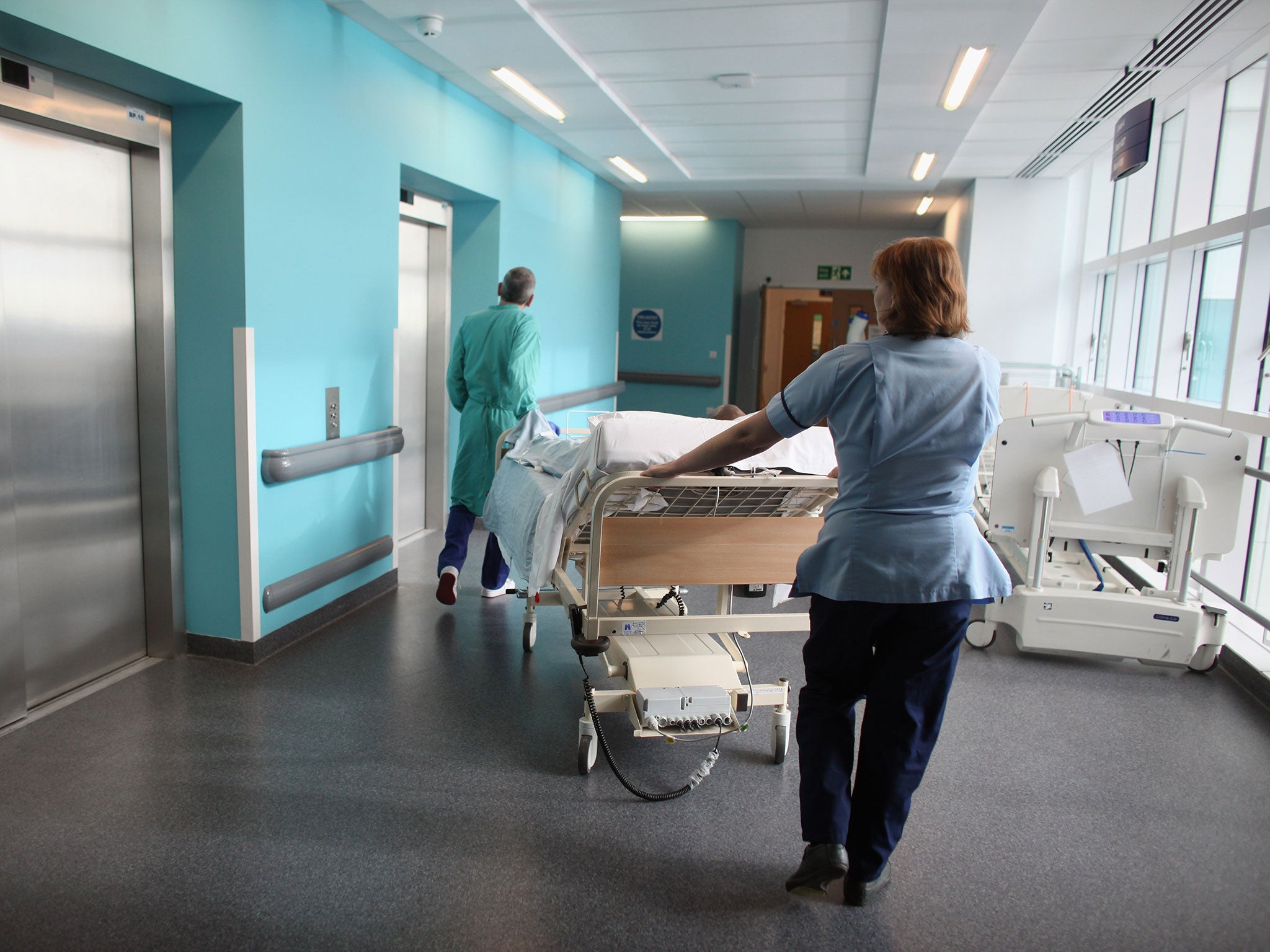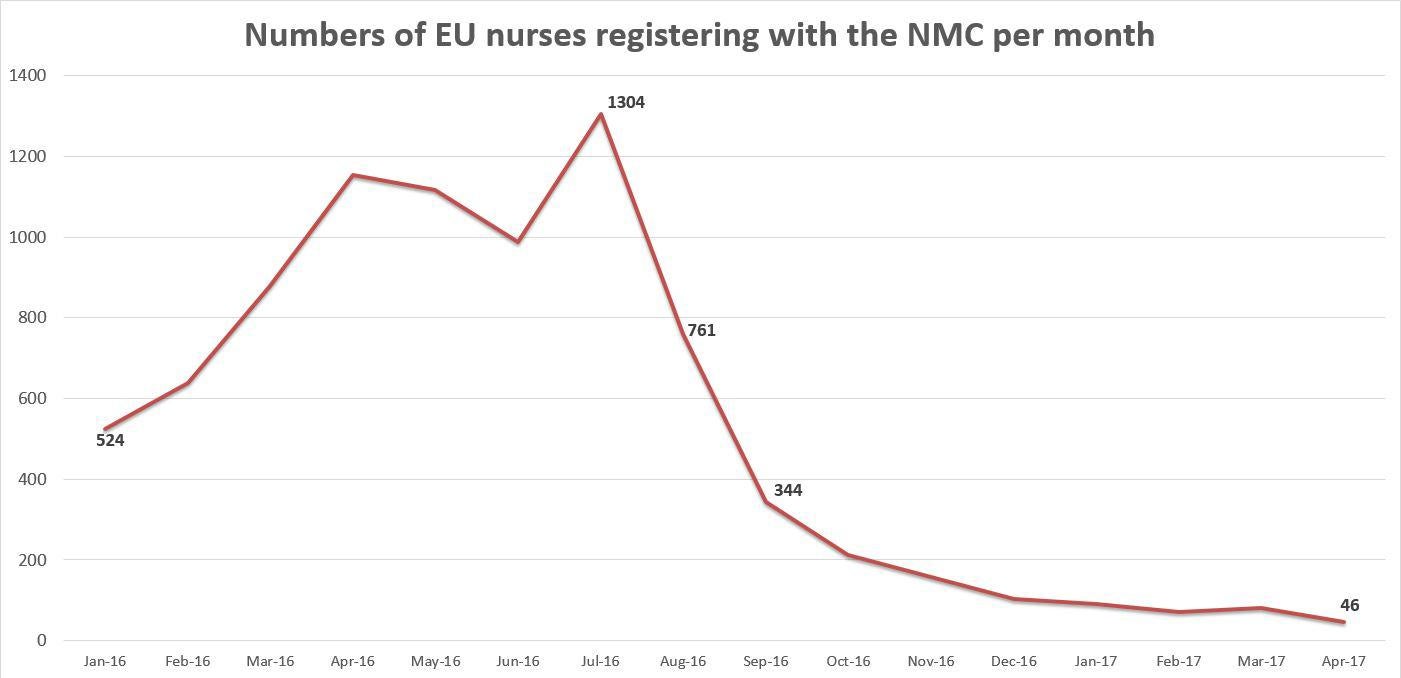Brexit: Number of EU nurses applying to work in UK plummets by 96%, show figures
‘The findings should be a wake-up call to politicians and health service leaders’

Your support helps us to tell the story
From reproductive rights to climate change to Big Tech, The Independent is on the ground when the story is developing. Whether it's investigating the financials of Elon Musk's pro-Trump PAC or producing our latest documentary, 'The A Word', which shines a light on the American women fighting for reproductive rights, we know how important it is to parse out the facts from the messaging.
At such a critical moment in US history, we need reporters on the ground. Your donation allows us to keep sending journalists to speak to both sides of the story.
The Independent is trusted by Americans across the entire political spectrum. And unlike many other quality news outlets, we choose not to lock Americans out of our reporting and analysis with paywalls. We believe quality journalism should be available to everyone, paid for by those who can afford it.
Your support makes all the difference.The number of European nurses registering to work in the UK has plummeted by 96 per cent since the EU referendum last June, prompting critics to warn Brexit has caused an “unforgivable drain of talent” in the health sector.
Just 46 nurses from EU countries registered with the Nursing and Midwifery Council (NMC) in April 2017, compared with 1,304 in July 2016, according to figures obtained through a Freedom of Information request by the Health Foundation.
The monthly statistics show the number of nurses registering with the NMC peaked in July 2016 at 1,304, before undergoing a steep decline — falling to just 244 in the two months until September, and down to 46 by April 2017.

The decline has raised alarm among experts, who warned the figures should be a “wake-up call” to politicians.
Health service leaders also warned of the urgency to offset any further loss in EU nursing staff in the near future.
The UK has repeatedly used international recruitment as a stop-gap measure to fill staffing shortages. Since 2008, the majority of international nurses registering in the UK have come from within the EU.
“The recruitment and retention of nurses is one of the biggest challenges facing health and social care, with a shortage of 30,000 nurses in England alone,” said Anita Charlesworth, director of research and economics at the Health Foundation.
“Without EU nurses, it will be even harder for the NHS and other employers to find the staff they need to provide safe patient care.
“The findings should be a wake-up call to politicians and health service leaders. Clearly action is needed to offset any further loss of EU nursing staff in the near future.”
Ms Charlesworth added that the decline in EU nurses comes at a time when there is already a chronic shortage of nurses in the UK, due to long-term failings in workforce planning and the scrapping of training bursaries.
“Clearly action is needed to offset any further loss of EU nursing staff in the near future,” she said. “But the overall shortage of 30,000 nurses is not a shortage caused by the Brexit vote.
“The chronic shortage of nurses is the result of years of short-term planning and cuts to training places. A sustainable, long-term approach to workforce planning is desperately needed.”
Labour’s Shadow Health Secretary, Jonathan Ashworth, accused the Tories of overseeing an “unforgivable drain of talent” which he warned patients would “pay the price” for.
“Theresa May’s weak and unstable government has pushed NHS services to the brink and it is patients who will pay the price,” Mr Ashworth said.
“Our health service has always relied on the contribution of overseas workers, yet these staff are being forced out by this Government’s neglect and disregard. The Tories are overseeing an unforgivable drain of talent out of our country because of their chaotic attitude to the Brexit negotiations.”
He urged the Government to prioritise the NHS in Brexit negotiations, and immediately guarantee the rights of EU nationals.
“The truth is that Theresa May has tried to use NHS staff as bargaining chips in her negotiations with Brussels,” he said. “The NHS should be a priority in the Brexit negotiations and the Government should immediately guarantee the rights of EU staff who are working here in our health and care service.”
The new figures came after it emerged in March that almost 2,700 EU nurses handed in their resignation letters in 2016, compared to 1,600 in 2014 – a jump of 68 per cent, according to Freedom of Information requests filed by the Liberal Democrats.
The following month, a leaked internal document from the Department of Health claimed Britain should prepare for a possible shortage of up to 42,000 nurses after Brexit.
It warned that if nurses from EU and non-EU countries stop coming to the UK in 2019, there would be a nursing staff shortage of between 26,000 and 42,000 within six years.
Join our commenting forum
Join thought-provoking conversations, follow other Independent readers and see their replies
Comments